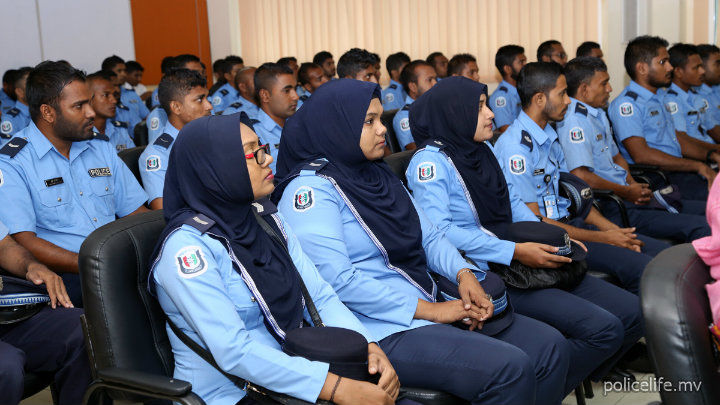Sexual harassment within Maldives Police Service under-reported
A quarter of women police officers interviewed for the study -“Rough Roads to Equality: Women Police in South Asia” by the New Delhi-based Commonwealth Human Rights Initiative (CHRI) – said they had faced harassment, but only half referred the incident to a higher authority.

23 Aug 2015, 09:00
A new regional study has found sexual harassment to be an under-reported, unacknowledged and inaccurately recorded problem within the Maldives Police Service.
A quarter of women police officers interviewed for the study –‘Rough Roads to Equality: Women Police in South Asia’ by the New Delhi-based Commonwealth Human Rights Initiative (CHRI) – said they had faced harassment, but only half referred the incident to a higher authority.
Detailing a culture of male dominance, superiority and discrimination within the police force, the study recommended an external and independent complaints investigation mechanism and the introduction of a zero-tolerance policy.
The report surveyed the situation of women in policing in five South Asian countries; Bangladesh, India, Pakistan and the Maldives and identified challenges to women’s participation in the police force.
Become a member
Get full access to our archive and personalise your experience.
Already a member?
Discussion
No comments yet. Be the first to share your thoughts!
No comments yet. Be the first to join the conversation!
Join the Conversation
Sign in to share your thoughts under an alias and take part in the discussion. Independent journalism thrives on open, respectful debate — your voice matters.




